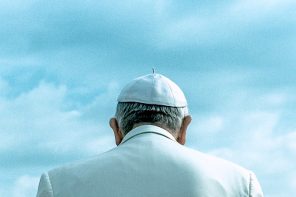One hears a great deal about conservative Christians — especially the ones running for the highest office in the land — respecting moral, spiritual, and legal authority. The Bible is inerrant, the Constitution is divinely inspired, America’s downfall is due to its retreat from following Judeo-Christian truths enshrined in the Constitution.
That’s why recent comments by Mike Huckabee and Rick Santorum, both of whom are looking to reprise their 2008 and 2012 presidential runs, makes one think Santorum might need to replace his trademark sweater vest with more suitable attire.
Huckabee is miffed by the notion that the Supreme Court might have the last word on the meaning of the Constitution. In a radio interview, the former Arkansas governor and Fox News host said he was angry at the possibility the Supreme Court could hold state bans on same-sex marriage unconstitutional. Huckabee lamented “this notion of judicial supremacy, where if the court makes a decision, I hear governors and even some aspirants to the presidency say, ‘Well that’s settled, it’s the law of the land.’ No, it’s not the law of the land.”
Well, actually it is. If the Supreme Court rules a law is unconstitutional it’s, you know, unconstitutional.
In his 2008 run, Huckabee had tried a different approach to questioning constitutional law. He suggested the Constitution be amended “so it’s in God’s standards rather than try to change God’s standards so it lines up with some contemporary view.” One might argue he’s not rejecting all authority, just secular authority.
Rick Santorum has some issues with religious authority, too. Today, reacting to Pope Francis’s comments about Catholics not needing to “be like rabbits,” Santorum, who is Catholic, said he finds the Pope “difficult to listen to.” He allowed that “when he speaks as the leader of the Catholic Church, I’ll certainly pay attention.” When is the Pope not speaking as head of the Catholic Church? In Santorum’s view, in interviews. And that interview on the plane failed to reflect a “core value of the faith and of the Catholic Church,” that people “should be fruitful and multiply.” (As Patti Miller points out here, what Francis said completely consistent with the encyclical Humanae Vitae promotion of “responsible parenthood,” while still deeming birth control “to be absolutely excluded as lawful means of regulating the number of children.”)
In a way, it seems like Huckabee and Santorum have learned from things from each other, constitutionally speaking. In suggesting that the Supreme Court should not have the last word on the constitutionality of same-sex marriage bans, Huckabee is echoing Santorum, who, in 2012, questioned the legality of the Court’s 1965 decision in Griswold v. Connecticut, ruling criminal bans on birth control unconstitutional. If being fruitful and multiplying is a core faith value, for Santorum, it seems to take precedence over not only civil law, but a Pope who affirms it in “difficult” ways.
For some conservatives, this questioning of the Supreme Court’s authority emanates from their view that Griswold forms the basis for rights they claim are not constitutionally recognized but have been created by “activist judges” who seek to impose them in reproductive and LGBT rights settings. Huckabee, in 2015, is speaking directly to the anxieties of Santorum in 2012 (and 2015): that the Supreme Court’s authority impinges on what they see as religious truths about homosexuality, abortion, and birth control. But what are religious truths when even Rick Santorum says he can’t listen to the Pope?




